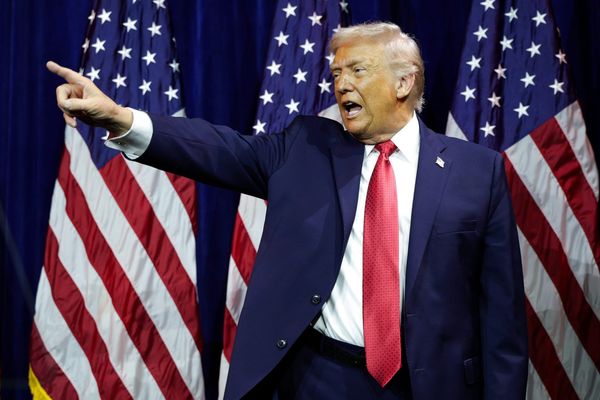
For a country famed for its modesty and reserve, the UK does seem to have found itself having an awful lot of conversations about genitalia before breakfast. I’m talking, of course, about the latest “gotcha” trend of posing questions to senior politicians about whether or not women can have penises, in what has become an increasingly acrimonious row about trans rights.
Couple that with the nightly social media pile-ons directed at anyone who dares to offer a nuanced position on gender identity, and it’s no wonder that when I told people that my organisation, More in Common, was writing a report about public attitudes on the topic, the most common response was that we were “very brave”.
But having spent many evenings over the past few months talking to ordinary Britons across the country from Glasgow to Witney and Brighton to Blyth (along with polling of 5,000 others), we found the public talked about trans people, and some of the issues involved, in a way that was totally removed from the debate playing out on the airwaves or our phone screens.
Log on to Twitter and it appears as though Britain is divided in two: between the trans allies and the transphobes. But when you log off and swap 280 characters for proper conversations, you see a very different picture.
First, most people start from a position of compassion about the struggles that trans people face. Many people shared stories with us about their trans colleagues, students, friends and family, with roughly a quarter of the population knowing someone who is trans according to our research. They shared respect for people’s bravery and gratitude that things had got better in recent years, along with frustration about the challenges and discrimination that trans people still face.
Most Britons don’t think the debate about trans people is one of the most important issues facing our country today (in fact, according to our research, only 2% do). Many are concerned instead about how they’re going to pay next month’s gas bill. But that doesn’t mean the public aren’t informed about the issues involved – in fact, we heard plenty of stories about the commonsense approaches that they’ve taken to accommodating trans people in their schools, communities and workplaces.
Almost no one we spoke to got worked up about calling someone by their preferred pronouns. Most thought it was important that schools were making trans pupils feel supported, and were also teaching young people that trans people existed. Some found the new terminology they heard from their children confusing, but their concerns were about being shouted at for getting things wrong or asking questions rather than hostility to change.
Instead, by and large, the public take a “live and let live approach” as long as it doesn’t undermine notions of fairness and fair play. That explains, for instance, why most people were happy, or indifferent, to the idea of introducing more unisex toilets (and those who weren’t were far more concerned about men’s toilet hygiene than any worries about trans people).
However, they were opposed (57% to 19%) to allowing trans women to compete in women’s sports – not because they want to police who does and who doesn’t count as a woman, but because they don’t think it’s fair. As Natalie from Long Eaton put it: “I think it’s a bit of a minefield, isn’t it? Men do tend to be stronger than women.”
Similarly, far from wanting to misgender children as the attorney general appeared to advocate a few weeks ago, most teachers in our focus groups said it was important that they respected children as they explored their gender identity. But at the same time people didn’t want children to undergo irreversible processes – such as taking cross-sex hormones – before the age of 18 or without proper medical advice and support. Far from two binary positions, the Britons we spoke to constantly strove to find the fairest path forward – embracing trans inclusion on some issues, and wanting to preserve sex-based boundaries on the other.
It was also clear that most people don’t see trans people as one monolithic group – they distinguished between those who had been through gender reassignment surgery and those who hadn’t, or those who had lived in their expressed gender for a long time and those for a short time. They felt that it was important to take a case-by-case approach rather than deciding policy through blanket diktats – that might not always be feasible, but often would better reflect the very individual journeys of people involved.
More than anything, the public wanted the space to be able to talk about these issues and to try to find a way through. The greatest threat to that is if the toxic discourse starts to bleed into the public conversation, leaving people afraid of being shouted down or labelled as bigots. Such an outcome would be bad for trans people, bad for those concerned about the protection of sex-based rights, and bad for society at large as we grapple with how to handle issues of social change.
Luke Tryl is the UK director of More in Common
Do you have an opinion on the issues raised in this article? If you would like to submit a letter of up to 300 words to be considered for publication, email it to us at guardian.letters@theguardian.com







